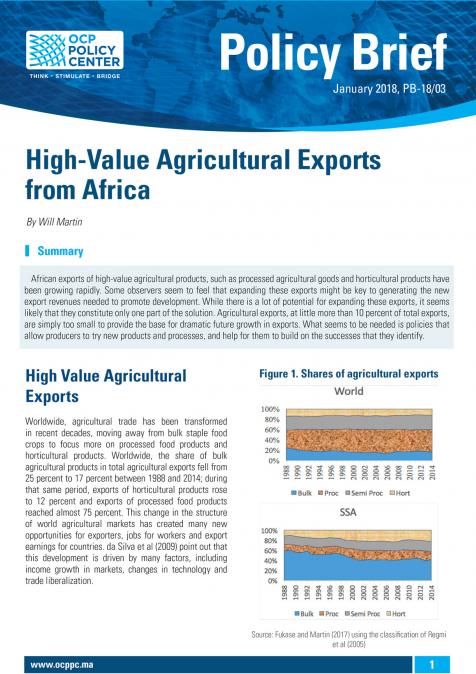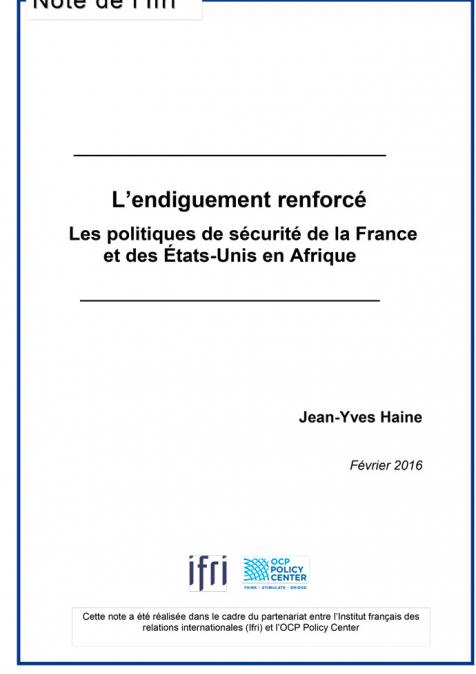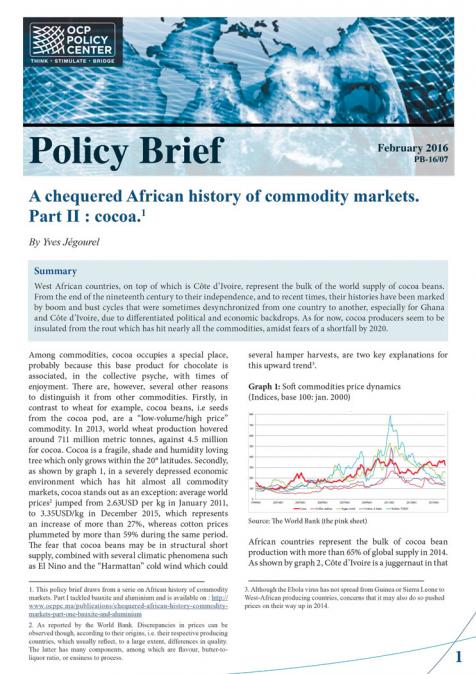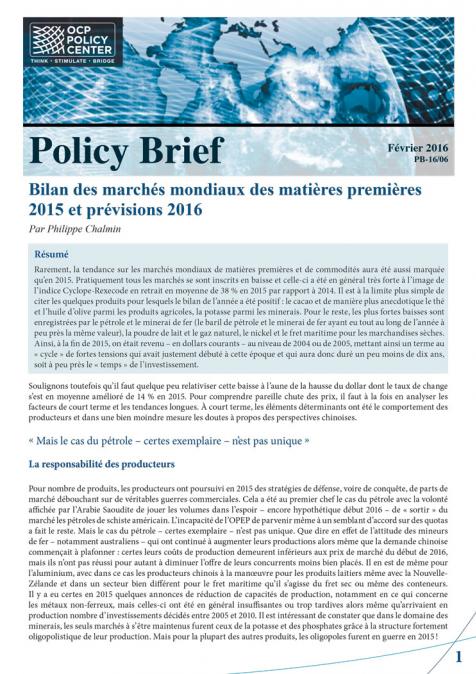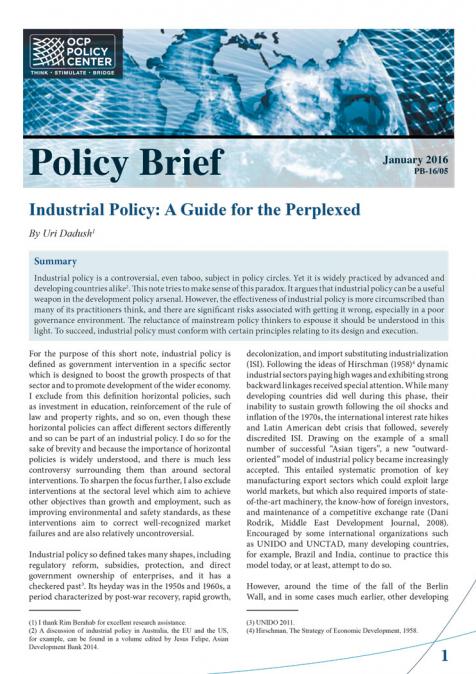Publications /
Policy Brief
African exports of high-value agricultural products, such as processed agricultural goods and horticultural products have been growing rapidly. Some observers seem to feel that expanding these exports might be key to generating the new export revenues needed to promote development. While there is a lot of potential for expanding these exports, it seems likely that they constitute only one part of the solution. Agricultural exports, at little more than 10 percent of total exports, are simply too small to provide the base for dramatic future growth in exports. What seems to be needed is policies that allow producers to try new products and processes, and help for them to build on the successes that they identify.

